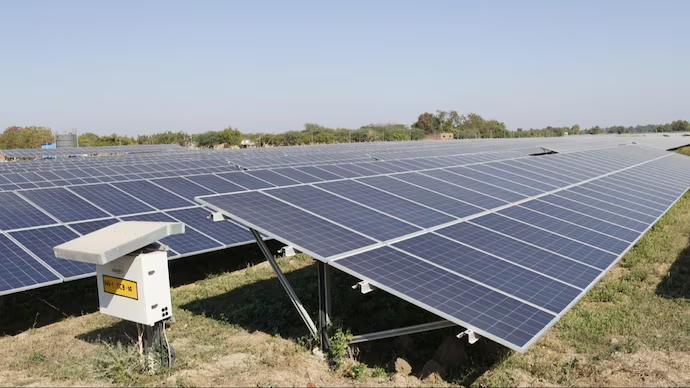A green energy vision for the future shines bright on Akola’s fields.
As soon-to-be operational solar power plants buzz to life, farmers look forward to a greener tomorrow.
On June 11, 2025, Maharashtra Chief Minister and Energy Minister Devendra Fadnavis initiated a revolutionary chapter in the history of the state’s clean energy journey by opening two huge solar power projects in Akola district. The 2 MW Redwa and 10 MW Bhendimahal power facility in Barshitakli tehsil, built under the Chief Minister Solar Agriculture Feeder Scheme 2.0, will provide clean daytime power to more than 2,595 farmers. This achievement highlights Maharashtra’s aggressive rural electrification and green energy deployment drive, which is laying down a blueprint for decentralized generation across the state.
The commissioning is a major milestone in meeting rural farmers’ energy requirements, providing secure daytime power for farming operations. The Redwa and Bhendimahal power plants will directly impact villages like Dagad Parwa, Kanheri, Dhabha, Barshitakli, Pathur Nandapur, Mahangao, Bahirkhed, and Ghota, delivering full-load electricity to increase farm productivity. In addition to these operational plants, Fadnavis initiated two other 10 MW solar projects at Manatri (Telhara tehsil) and Akolkhed (Akot tehsil), which upon completion are expected to empower another 1,500 farmers with green energy.
Alongside this effort to modernize the region’s power grid, the Chief Minister laid foundation stones for two new 33 KV substations in Hivra Korde and Parad in Murtijapur tehsil. Supported by the Asian Infrastructure Investment Bank (AIIB) grid strengthening program, the substations will improve the efficiency and distribution of electricity, supplementing the solar efforts. Collectively, these projects demonstrate a comprehensive strategy for upgrading Maharashtra’s rural energy system, integrating renewable generation with strong grid improvements.
The Chief Minister Solar Agriculture Feeder Scheme 2.0 seeks to produce 16,000 MW of decentralized solar energy, a ambitious goal that can revolutionize the state’s farming sector. By giving importance to daylight power for farmers, the scheme caters to an urgent requirement for steady power during the peak hours of farming, minimizing dependence on fossil fuels and grid fluctuation. The Akola initiatives are a model that can be replicated statewide, with the potential to elevate rural economies and foster sustainable practices.
The initiative comes at a pivotal moment, as Maharashtra aims to balance urbanization with rural growth. Emphasis on solar power not only resonates with national green energy objectives but also counters the problems of sporadic power supply in rural areas. With the new plants commencing operations and future projects shaping up, farmers in Akola and elsewhere are poised to benefit from increased productivity and lower energy expenses. The state’s resolve to develop solar infrastructure marks a brighter, greener tomorrow, with thousands more expected to gain as the scheme is implemented further.
Instagram: https://www.instagram.com/newsdotz/
YouTube: https://www.youtube.com/@NewsDotz
Facebook: https://www.facebook.com/profile.php?id=61573903448264
Twitter: https://x.com/NewsDotz

